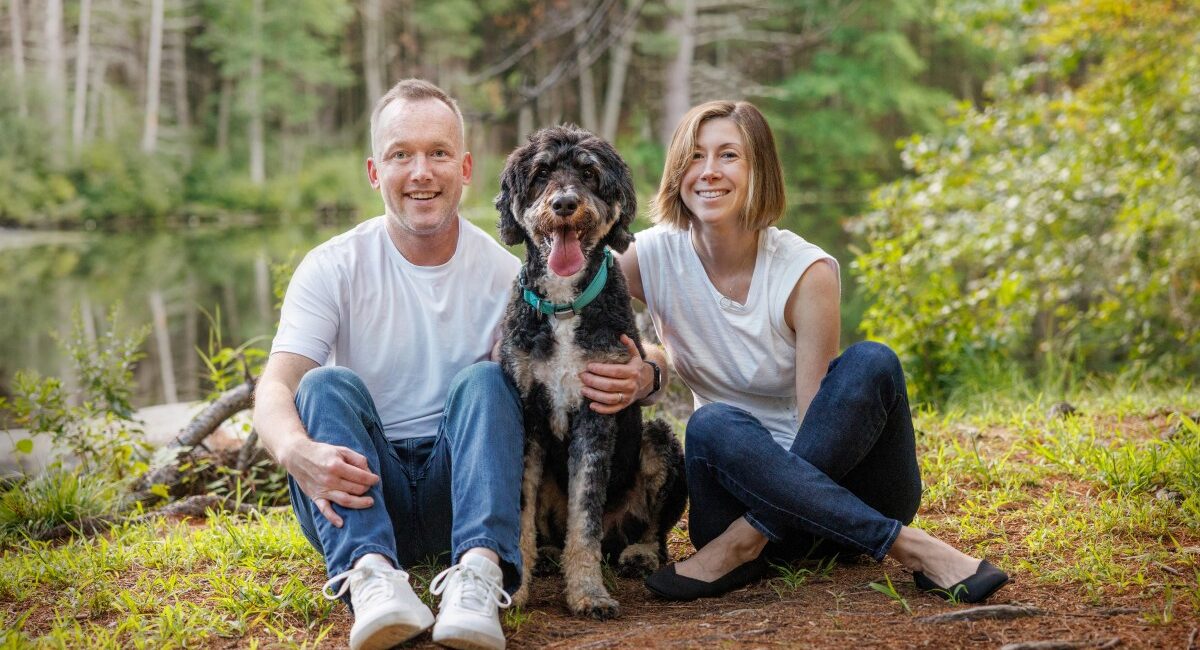The global assistive technology market was valued at more than $22 billion in 2023 and is projected to grow substantially by 2030. Despite the potential market size, many founders building tech to help people with disabilities struggle to secure the kind of early funding needed to get their companies off the ground in the first place.
Adaptation Ventures is a new angel group hoping to fill that funding gap by providing capital to early-stage startups building accessibility tech. It will back startups building tech specifically for persons with disabilities as well as companies with products designed for a broader market that also helps those populations.
The firm was co-founded by married couple Brittany Palmer and Rich Palmer (pictured above), both of whom are former startup founders, angel investors, and persons with disabilities.
Brittany told TechCrunch she experienced this funding gap problem firsthand when she tried to raise capital for her company Beeyonder, a startup that offered virtual travel experiences to persons with disabilities.
“Venture capital firms really didn’t understand the disability community, or how big it was, or the opportunities to sell to them,” she said. “When I was talking with founders in the disability tech space, there was a similar sort of consensus that a lot of people in the startup and venture world really didn’t understand the space.”
Rich, the former co-founder of Gravyty, found the same sentiment while he was working on the investing side as a managing director, and then angel investor, at Launchpad Venture Group, an angel investing group focused on tech and science-based startups.
“We knew this opportunity existed,” he said. “We were meeting incredible founders, and trying to figure out the best way to get capital to them.”
Despite the couple’s angel investing experience, they initially set out to raise a traditional venture fund and pitched numerous LPs, including impact investors and high-net-worth individuals. While they did see some traction on their original fund idea, some of that interest dried up alongside the changing narratives in the industry, and beyond, surrounding diversity, equity, and inclusion that came with the new presidential administration.
They also found that high-net-worth individuals were more interested in getting directly involved with the startups in this space, as opposed to serving as LPs in a fund, and they started to think about building an angel group instead.
“We’ve both benefited from angel investors who took early bets on us,” Rich said. “We are both people with disabilities. We went out and we’re learning that, you know, there are no angel groups in this space. There’s no first money in that’s helping companies get from point A to point B and it’s crazy.”
Adaptation Ventures plans to invest a minimum of $250,000 into each company with the option for co-investing too. The group will hold quarterly meetings that include a minimum of four pitches and investors will vote on which companies should make it to the due diligence stage, Brittany said.
There are a lot of potential companies that fall under the group’s investment strategy which Rich described as, making the big stuff smaller and the expensive stuff cheaper.
Companies that fit the group’s thesis could include something like ReBokeh, a company that builds assistive technology for people with low vision. It also includes companies that aren’t focused on accessibility, but can also help those with disabilities like Tonal, Rich mentioned as an example, which makes exercising more accessible to those with disabilities that prevent them from holding physical weights.
Rich joked that with the pair’s collective decades of experience in the startup and investing world, they have been practicing for this new role for the last 10 years.
“I’m a brain aneurysm survivor,” he said. “I’ve had temporary and permanent disabilities as a result of that. [Brittany] is a bilateral amputee. It’s hard not to notice these things or hear these things about us. So we have attracted founders in this space and invested as angels for the past several years. The odds are kind of against you getting that funding, and so we almost had to do it.”



No Comment! Be the first one.